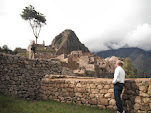Greetings! I am a fan of ancient myths and a scholar of world religions. I enjoy exploring the parallels that exist between the two. One of such is the commonalities of Gilgamesh and the Buddha. A careful review can offer fascinating insights into ancient narratives and spiritual ideologies. This post scrapes the surface of some of those concepts.
In the annals of ancient history, tales of epic heroes and enlightened beings have transcended time, resonating across cultures and continents. Among these revered figures stand Gilgamesh, the valiant Sumerian king of Uruk, and Siddhartha Gautama, who was the enlightened sage who founded Buddhism. Despite emerging from vastly different cultural backgrounds, Gilgamesh from Mesopotamia and the Buddha from ancient India, their stories bear striking resemblances, echoing timeless truths that transcend geographical and temporal boundaries.
Central to both Gilgamesh and the Buddha's narratives is the quest for enlightenment and the pursuit of deeper understanding. Gilgamesh embarks on a heroic journey in search of immortality after his dear friend Enkidu's death, seeking the secret of eternal life. Similarly, the Buddha, then Prince Siddhartha, embarks on a spiritual quest to comprehend the nature of suffering. In the process, he attained enlightenment, transcending the cycle of birth and rebirth, samsara.
Both figures grapple with mortality and loss, albeit in different ways. Gilgamesh confronts mortality through the death of Enkidu, which prompts his quest for immortality. Meanwhile, the Buddha's awakening was catalyzed by encountering sickness, old age, and death, prompting him to profound introspection into the nature of existence and human suffering.
Gilgamesh and the Buddha undergo transformative journeys that lead to self-discovery and enlightenment. Gilgamesh's odyssey takes him through mythic trials, heroic battles, and encounters with mystical beings, ultimately leading him to acceptance of his mortality and a deeper appreciation of life's transient nature. In parallel, the Buddha's journey involves ascetic practices, meditation, and profound contemplation, culminating in his enlightenment under the Bodhi tree.
Both figures leave behind profound teachings that continue to influence countless lives. Gilgamesh's journey yields wisdom about the inevitability of mortality and the importance of cherishing the present moment. On the other hand, the Buddha's teachings, the Four Noble Truths, and the Eightfold Path, offer a guide to alleviate suffering and achieve liberation from worldly attachments.
While emerging from distinct cultural backgrounds and historical contexts, the narratives of Gilgamesh and the Buddha intersect on profound thematic levels. Their stories exemplify the universal human quest for meaning, understanding, and transcendence. Despite their differences, these ancient tales continue to echo essential truths about the human condition, inviting contemplation and reflection across generations.
Gilgamesh and the Buddha stand as timeless symbols, their journeys and teachings transcending time and culture, offering invaluable lessons on the path to enlightenment and the pursuit of deeper truths. In embracing these parallels, we find a shared humanity that crosses the boundaries of geography and time, reminding us that the quest for wisdom and enlightenment is a universal endeavor that unites us all.
All the best,
Tom


No comments:
Post a Comment